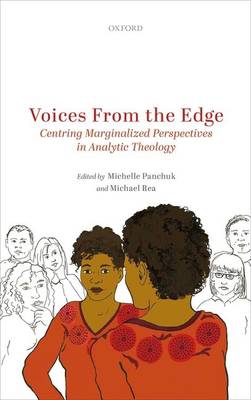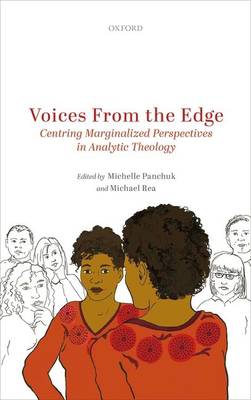
Bedankt voor het vertrouwen het afgelopen jaar! Om jou te bedanken bieden we GRATIS verzending (in België) aan op alles gedurende de hele maand januari.
- Afhalen na 1 uur in een winkel met voorraad
- In januari gratis thuislevering in België
- Ruim aanbod met 7 miljoen producten
Bedankt voor het vertrouwen het afgelopen jaar! Om jou te bedanken bieden we GRATIS verzending (in België) aan op alles gedurende de hele maand januari.
- Afhalen na 1 uur in een winkel met voorraad
- In januari gratis thuislevering in België
- Ruim aanbod met 7 miljoen producten
Zoeken
Voices from the Edge
Centering Marginalized Perspectives in Analytic Theology
€ 169,45
+ 338 punten
Omschrijving
Over the past several decades, scholars working in biblical, theological, and religious studies have increasingly attended to the substantive ways that our experiences and understanding of God and God's relation to the world are structured by our experiences and concepts of race, gender, disability, and sexuality. These personal and social identities and their intersections serve as a hermeneutical lens for our interpretations of God, self, the other, and our religious texts and traditions. However, they have not received nearly the same level of attention from analytic theologians and philosophers of religion, and so a wide range of important issues remain ripe for analytic treatment. The papers in this volume address the various ways in which the aforementioned social identities intersect with, shape, and might be shaped by the questions with which analytic theology and philosophy of religion have typically been concerned, as well as what new questions they suggest to the discipline. We focus on three central areas of analytic theology: methodological principles, the intersection of social identities with religious epistemology, and the connections among eschatology, ante-mortem suffering, and ante-mortem social perceptions of bodies.
Specificaties
Betrokkenen
- Uitgeverij:
Inhoud
- Aantal bladzijden:
- 256
- Taal:
- Engels
- Reeks:
Eigenschappen
- Productcode (EAN):
- 9780198848844
- Verschijningsdatum:
- 1/09/2020
- Uitvoering:
- Hardcover
- Formaat:
- Genaaid
- Afmetingen:
- 160 mm x 236 mm
- Gewicht:
- 635 g

Alleen bij Standaard Boekhandel
+ 338 punten op je klantenkaart van Standaard Boekhandel
Beoordelingen
We publiceren alleen reviews die voldoen aan de voorwaarden voor reviews. Bekijk onze voorwaarden voor reviews.








